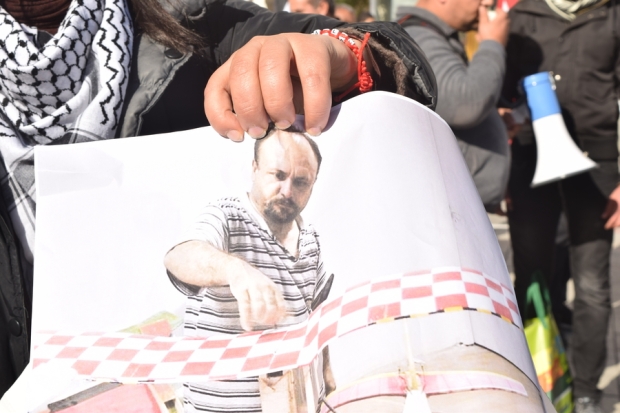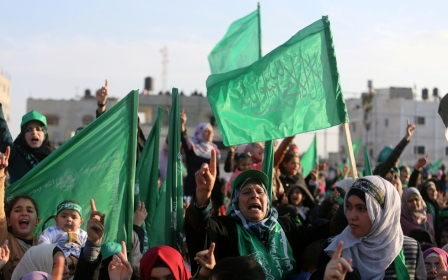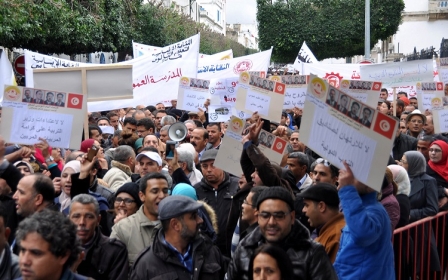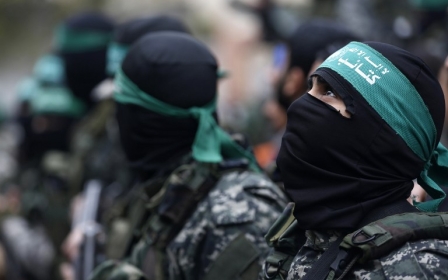Mossad blamed as Tunisians protest assassination of engineer
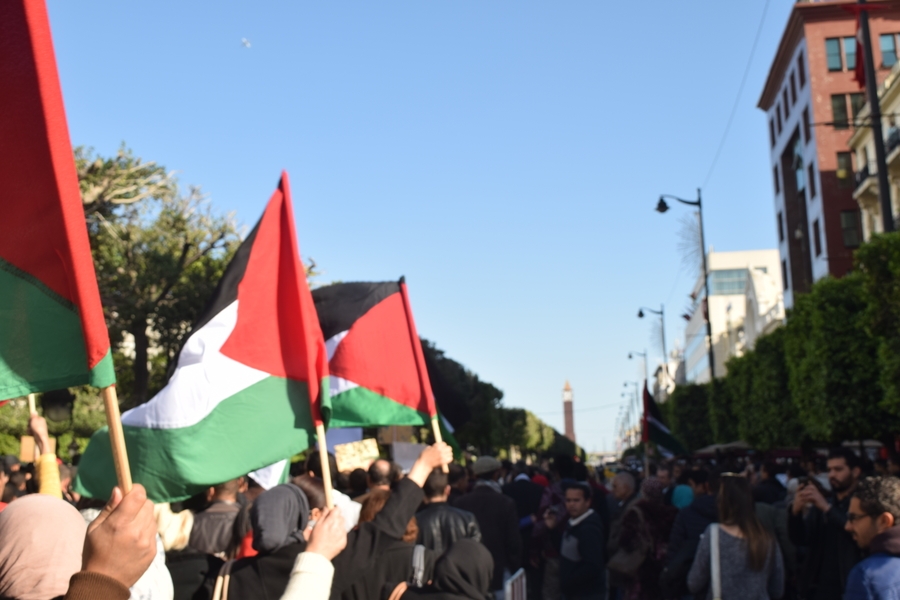
Hundreds of Tunisians protested in Habib Bourguiba Avenue, the main street of the capital Tunis, on Tuesday to condemn the assassination of Mohamed Zouari, a Tunisian engineer who was murdered on 15 December.
Hamas’ military wing had accused Mossad, the Israeli intelligence agency, of carrying out the assassination.
The Qassam Brigades said Zouari had supervised the manufacturing of armed drones that Hamas used in the 2014 war in Gaza.
"Qassam Brigades mourns the martyr of Palestine, martyr of the Arab and Muslim nation, the Qassam leader, engineer and pilot Mohammad Zawari, who was assassinated by Zionist treacherous hands on Thursday in Sfax," the group said in a statement. "The enemy must know the blood of the leader Zawari will not go in vain."
The Tunisian interior ministry said Zouari was fatally shot multiple times in front of his house in El Ain, near Sfax. Four rental cars were used in the killing and two handguns and silencers were seized, the ministry said.
"It is possible that a foreign service is implicated but... we do not yet have any tangible proof," Tunisian interior minister Hedi Majdoub told a news conference after attending a security meeting with the prime minister.
He added that at least two foreigners were involved in the plot. Ten suspects, all Tunisians, have been arrested in relation to the incident.
At Tuesday's protest, participants called for mobilisation to put pressure on the government in Tunis, whose comments on the assassination were far from assertive until Tuesday morning.
Representatives of various political parties, student unions, social organisations and groups that oppose normalising relations with Israel were present to reaffirm their commitment to the Palestinian cause.
Despite the ideological and political diversity of participants, only Tunisian and Palestinian flags were raised at the protest. However, some tensions and reluctance could be felt from some individuals.
“I am only here to stand for the right of the victim, and assert my support to the cause. But I cannot join the crowd,” said an attendee who stood on the edge of the protest. “A part of those who are present now in the crowd have voted against the bill that criminalises normalisation with the Zionist entity. I cannot stand with them.”
Numerous bystanders spontaneously joined the demonstration to express their outrage at their government’s position toward Zouari’s murder.
“I do not understand where our government is. This man is a scientist; he has been killed in our country and no serious reaction has been taken,” one protester said. “This is very dangerous ... [it] violates our sovereignty.”
The slogans of the different movements converged into a sole slogan.
“The people want national sovereignty, the people want the right of the victim,” protesters chanted, echoing the motto of the 2011 Tunisian uprising - “The people want to topple the regime.”
Protesters said Tunisia is not doing enough to defend its national sovereignty by opting to abstain from entering into a challenging debate with Israel.
The bill criminalising normalisation has not been adopted in the new constitution of 2014 despite its popularity.
The assassination of Zouari is the third reported Israeli operation on Tunisian soil. In 1985, Israel attacked the headquarters of the Palestinian Liberation Organisation near Tunis, and in 1988 Israeli troops assassinated Fatah leader Khalil Ibrahim al-Wazir, known as Abu Jihad.
Middle East Eye propose une couverture et une analyse indépendantes et incomparables du Moyen-Orient, de l’Afrique du Nord et d’autres régions du monde. Pour en savoir plus sur la reprise de ce contenu et les frais qui s’appliquent, veuillez remplir ce formulaire [en anglais]. Pour en savoir plus sur MEE, cliquez ici [en anglais].


